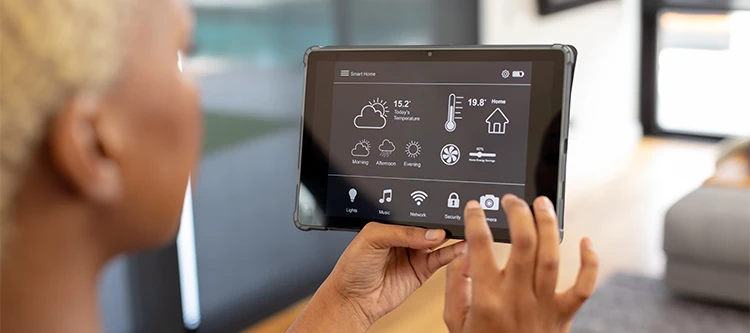In this article:
- What is Smart Home Technology?
- 5 Smart Home Technology Trends in 2025
- - Advanced Home Automation Systems
- - Energy Efficiency and Sustainability
- - Enhanced Home Security
- - Integration with Electric Vehicles (EVs)
- - Health and Wellness Monitoring
- - Enhanced Home Security
- Examples of Smart Home Devices and Systems in 2025
- - Smart Home Hubs
As we move into 2025, smart home technology continues to evolve, offering homeowners unparalleled convenience, efficiency, and security. From voice-activated systems to intelligent energy management, the advancements in this field are reshaping modern living. Many energy-efficient home upgrades are making a difference for the environment while helping homeowners save money on utility bills and taxes.
What is Smart Home Technology?
Smart home technology refers to devices and systems connected to the internet, allowing homeowners to control and monitor various aspects of their homes remotely. These include lighting, heating, cooling, security, appliances, and entertainment systems. The technology leverages artificial intelligence (AI), machine learning, and advanced sensors to create a seamless and personalized home environment.
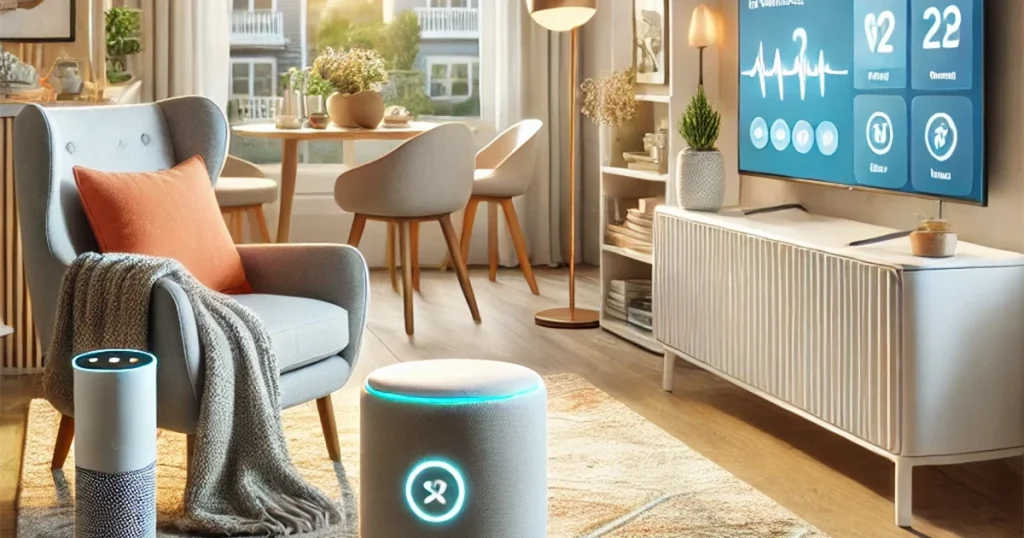
5 Smart Home Technology Trends in 2025
Smart home technology has rapidly evolved, transforming how we interact with our living spaces. In 2025, we can expect even more sophisticated and integrated systems that enhance comfort, security, and efficiency.
1. Advanced Home Automation Systems
Gone are the days of basic timers and rudimentary controls. Modern home automation systems integrate AI to learn your preferences and routines. For instance, your home might automatically adjust the thermostat before you wake up, dim the lights as the evening sets in, or preheat your oven when it detects you’re on your way home.
2. Energy Efficiency and Sustainability
With increasing emphasis on sustainability, smart home devices are focusing on energy conservation. Smart thermostats, such as the latest iterations of Nest or Ecobee, can optimize energy use based on real-time weather data and household occupancy patterns. Solar-powered smart systems are also gaining traction, particularly in regions with fluctuating energy costs like the northeast.
3. Enhanced Home Security
Security remains a top priority for homeowners. In 2025, smart cameras and doorbells are equipped with facial recognition, two-way audio, and real-time alerts. Systems like Ring or Arlo can now distinguish between a delivery person, a neighbor, or an unknown individual, ensuring tailored alerts.
4. Integration with Electric Vehicles (EVs)
As EV ownership rises, smart home systems now integrate EV charging stations. These setups allow homeowners to schedule charging during off-peak hours and monitor energy consumption through a unified app.
5. Health and Wellness Monitoring
Smart technology is extending into health. Devices like air quality monitors, smart beds, and even intelligent kitchen appliances are designed to promote healthier lifestyles. For example, a smart fridge might suggest recipes based on the food stored inside, minimizing waste and encouraging balanced meals.
Examples of Smart Home Devices and Systems in 2025
Impressive new product releases and innovation annoucements are happening the field of smart home technology every day. Below are some of the most popular products that are gaining wide popularity in 2025. Organizations like CES (Consumer Electronics Show), CNET, and TechRadar provide continuous news and information on the modern technology developments and applications.
Smart Home Hubs
Devices like Amazon Echo, Google Nest Hub, and Apple HomePod serve as central control points for various smart home devices. These hubs not only act as virtual assistants for everyday tasks like setting timers and checking the weather but also integrate with multiple smart devices, allowing seamless control through voice commands or apps. For instance, you can say, “Goodnight,” and the hub can lock the doors, turn off lights, and adjust the thermostat.
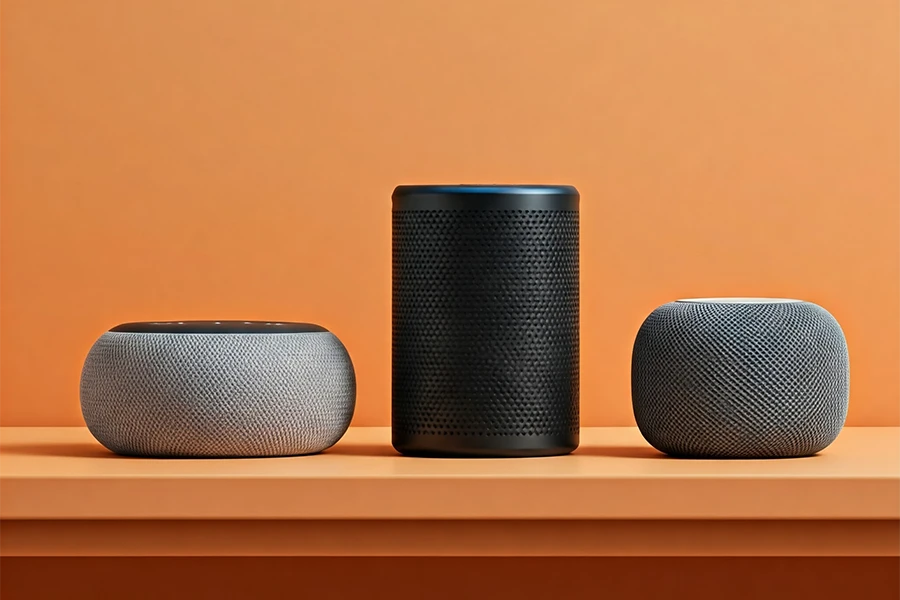
Smart Thermostats
Smart thermostats are a game-changer for energy efficiency. Devices like Nest Thermostat and Ecobee use AI to learn your temperature preferences and create schedules that optimize energy usage. They can detect when you’re away and adjust the temperature accordingly, saving money on heating and cooling bills. Some even integrate with weather forecasts to make real-time adjustments.
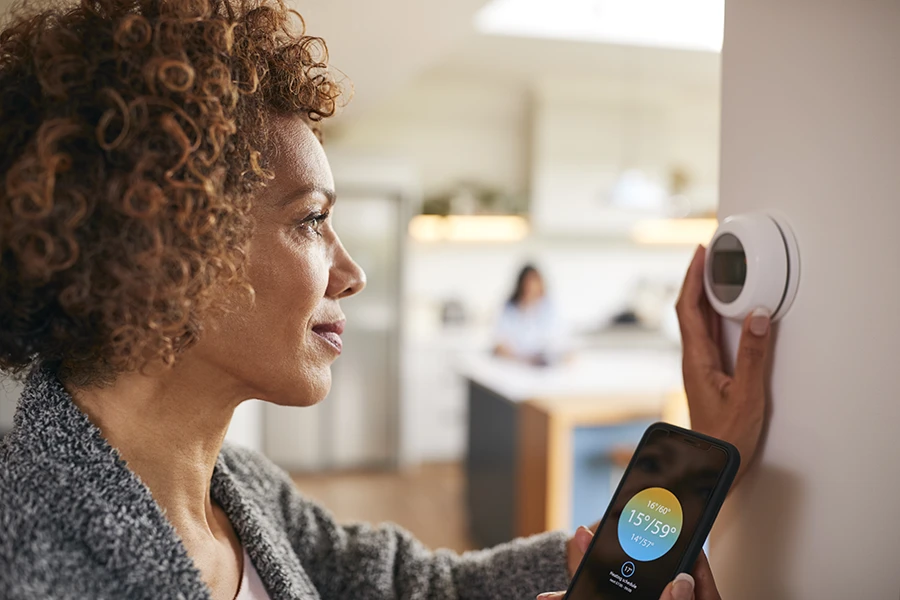
Smart Lighting
Smart lighting systems, including Philips Hue and LIFX, offer a range of options for enhancing ambiance and convenience. With customizable brightness and color settings, these systems let you create the perfect mood for any occasion. Automated schedules can turn lights on or off at specific times, and geofencing features ensure you never enter a dark home.
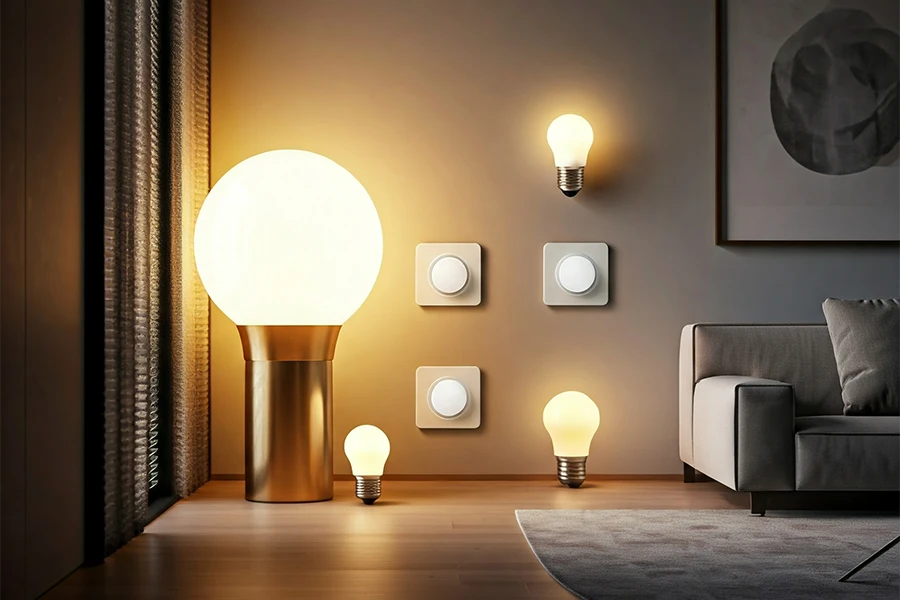
Smart Home Security Systems
In 2025, home security systems are becoming more intelligent and integrated, offering advanced features like AI-powered video surveillance, smart locks, and motion sensors. These systems, such as the Ring Alarm Pro and Nest Cam IQ, are equipped with AI to analyze video feeds and detect unusual activity, offering real-time alerts directly to your smartphone. Smart locks like the August Wi-Fi Smart Lock provide keyless entry, allowing you to control access remotely, while motion sensors, like the Ecobee SmartSensor, can detect movement and trigger security cameras or lights. These technologies work together to create a seamless, more efficient, and highly customizable home security experience.
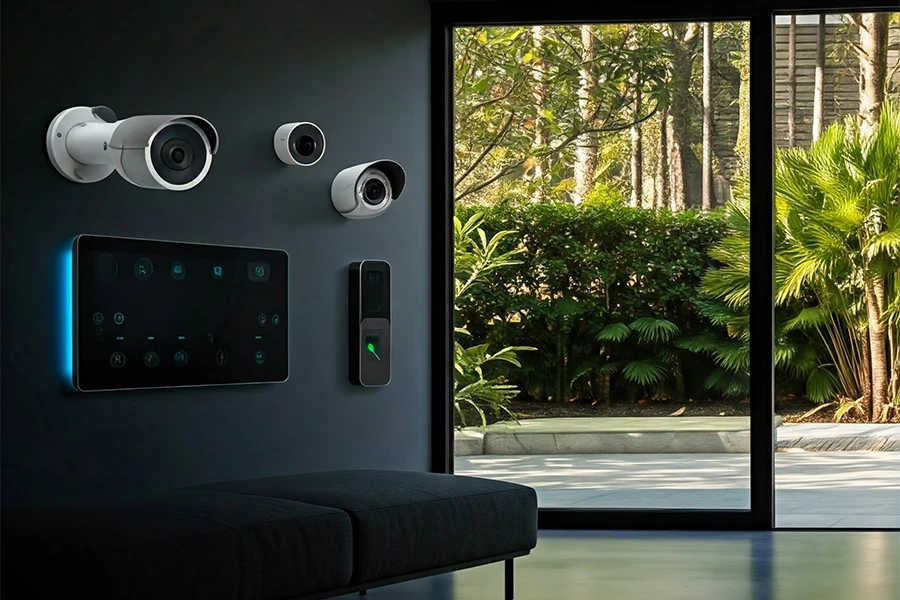
Smart Home Appliances
Smart home appliances in 2025 continue to revolutionize everyday household tasks, with innovations that include remote control, voice activation, and automated scheduling. Brands like Samsung and LG are leading the way with their smart refrigerators with features like a touchscreen interface for managing grocery lists, controlling other smart devices, and even streaming music or TV shows. Smart ovens, like the June Oven, allow users to control cooking remotely, set precise temperatures, and receive notifications when food is ready. Washing machines such as the LG TurboWash 360 can be scheduled and monitored via smartphone apps, optimizing water usage and improving energy efficiency.
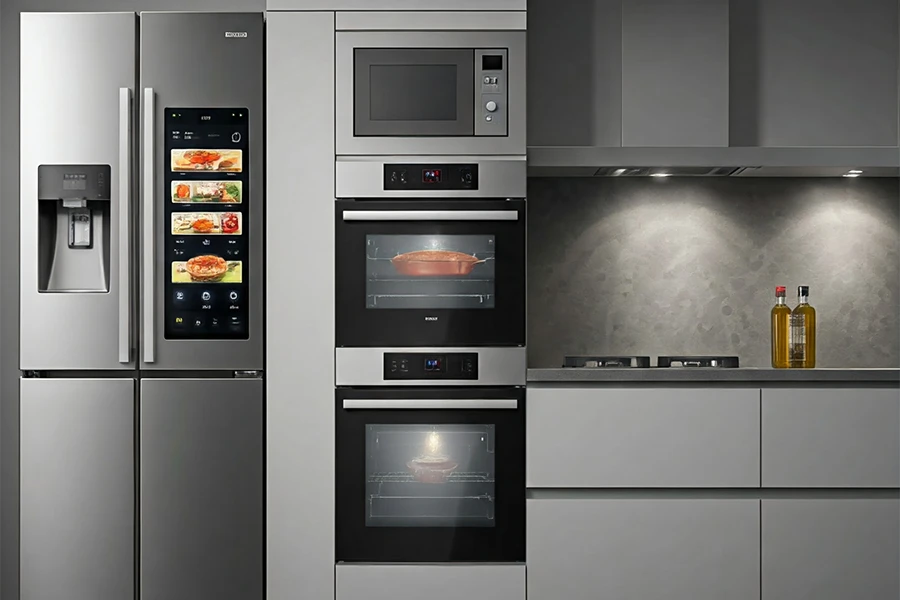
Smart Home Technology for the Elderly
In 2025, smart home technology is playing a pivotal role in enhancing the quality of life for elderly individuals by promoting independence, safety, and peace of mind. These technologies offer tailored solutions that help seniors manage daily activities more easily, while also providing support for caregivers and family members. Devices like smart watches, motion sensors, and voice-controlled systems can significantly improve both safety and convenience. With advancements in fall detection, medication reminders, and remote monitoring, smart home technology is redefining the elder care landscape, enabling seniors to live more confidently and independently in their homes.

Fall Detection and Emergency Alerts
Devices like smart watches or sensors can detect falls and alert caregivers or emergency services immediately.
Medication Reminders
Smart devices help seniors keep track of medication schedules with visual or auditory reminders.
Voice-Activated Assistance
Virtual assistants like Alexa or Google Home simplify daily tasks, from setting reminders to controlling lights and appliances.
Remote Monitoring
Family members or caregivers can monitor activity, health data, and home security through connected systems, ensuring peace of mind without intruding on privacy.
Accessibility Features
Smart door locks, automated blinds, and voice-controlled systems make homes more accessible for those with mobility challenges.
Financial Benefits of Smart Home Upgrades
Investing in smart home technology not only enhances convenience and efficiency but can also offer financial advantages. Certain energy-efficient upgrades are included in the list of tax-deductible home improvements and may qualify for federal tax credits. For instance, the Energy Efficient Home Improvement Credit allows homeowners to claim up to 30% of qualified expenses for improvements made through 2032. Additionally, integrating smart thermostats or energy-efficient appliances can contribute to these savings.
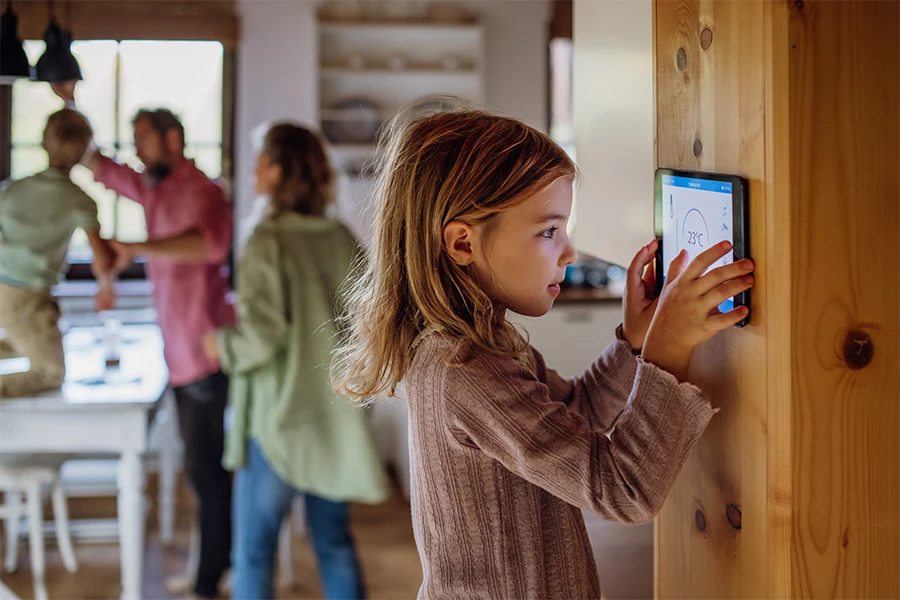
Getting Started on Smart Home Technology Upgrades
If you are considering smart home upgrades, the first step would be identifying your priorities. Whether it’s energy efficiency, enhanced security, or convenience, there’s a solution to match your needs. Consult local experts or visit retailers specializing in smart home technology to explore the best options.
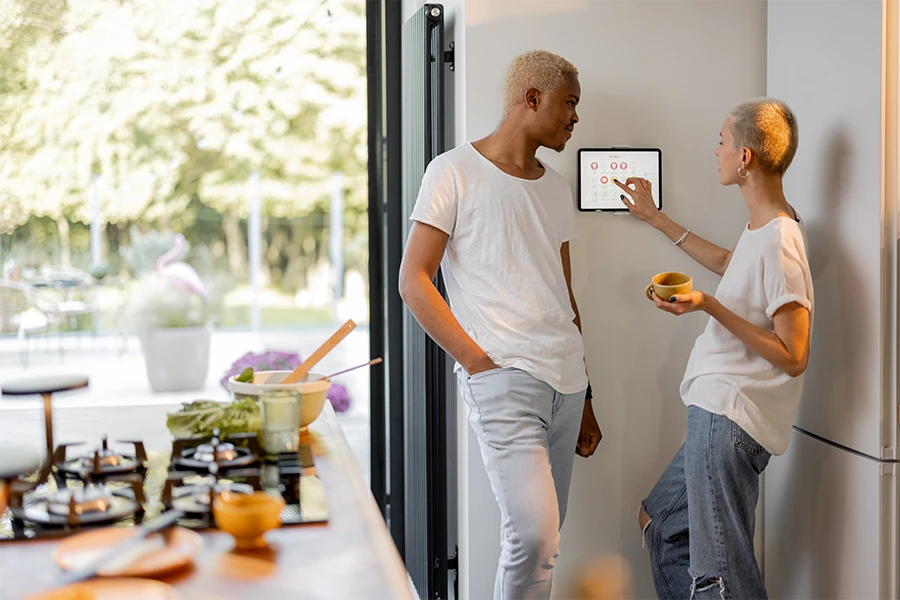
Key Takeaways
- Enhanced Convenience: Smart devices streamline daily tasks, from controlling lighting to managing home security with a simple voice command or app.
- Energy Efficiency: Upgrades like smart thermostats and energy-monitoring systems help reduce utility bills and support eco-friendly living.
- Increased Security: Smart home security systems provide real-time alerts, remote monitoring, and advanced features like facial recognition and motion detection.
- Future-Proof Investment: Homes with integrated smart technology have higher resale appeal, making them a valuable long-term investment.
- Customization Options: From entertainment systems to home automation hubs, smart devices can be tailored to suit your lifestyle and preferences.
Conclusion
Smart home technology continues to revolutionize the way we live, offering convenience, energy efficiency, and enhanced security. Whether you’re looking to save on utility costs, automate your daily routines, or boost the value of your home, smart devices provide a world of possibilities. Embracing this technology not only enhances your quality of life but can also have long-term financial and environmental benefits.
Are you ready to transform your home into a smarter, more efficient space? Start small with a smart thermostat or lighting system, or go all-in with a comprehensive home automation setup.

